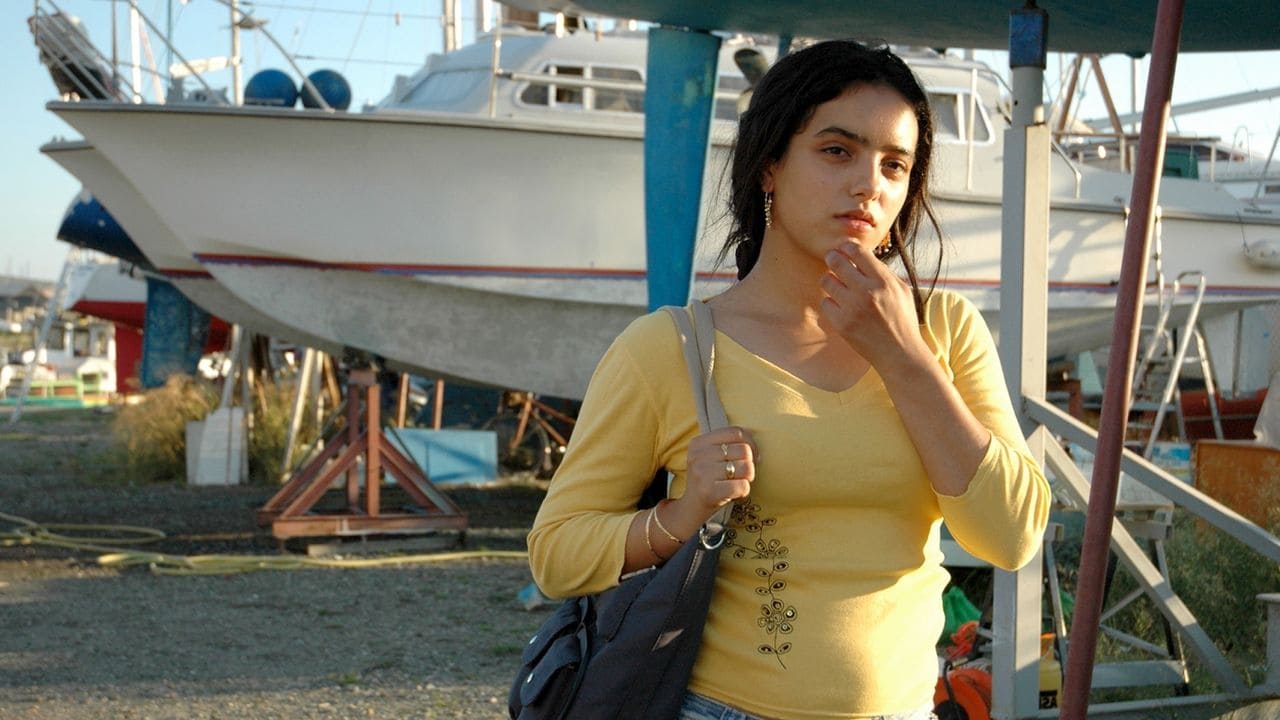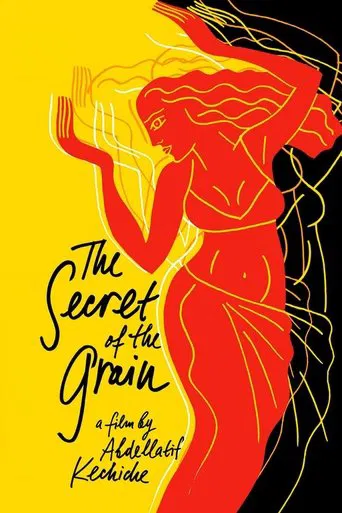

People are voting emotionally.
... View MoreNice effects though.
... View MoreThe film creates a perfect balance between action and depth of basic needs, in the midst of an infertile atmosphere.
... View MoreThe movie really just wants to entertain people.
... View MoreThis Franco-Tunisian film about an arabian family in France is extraordinary. Not only is a delightful piece of art, made by someone who really loves to show and more important than all, value the small things on life. Abdellatif Kechiche's 'La Graine et le Mulet ' is a fulfilling experience for those who are starving for a film that is both intellectually and emotionally impactive. With the close- ups in the face of the characters dialoguing, and the totally realistic, raw atmosphere and art direction, creates a feeling of intimacy between the viewer and the characters on this film, even if you have never seen them before. Also, the characters often are shown doing day-to-day things, eating in the table, but yet, everything works in function to the plot. Nothing really seems pointless. That's perhaps what is more fantastic about this film. The acting is also great. Certainly you won't regret watching this amazing film. The only complaint I have is due the fact the film is way wordier. 9/10
... View MoreCouscous is enthralling in its simplicity, how it deals with its subject matter with a great amount of realism. The subject matter here is Slimane, a man getting closer to old age and after being forced out of his long term job in the local ship yard attempts to make a success of himself.As with many protagonists who are working class struggling in life and wanting to succeed Slimane faces problems achieving his dream of a restaurant as well as in his personal life. Slimane is shown to work hard in preparation of his dream by committing himself, working on a plan to gain a bank loan with his step daughter and painstakingly decorating the restaurant with his son. These scenes are acted out in a realistic manner, no exaggerated gestures or outburst but portrayed as ordinary people in ordinary situations. No exciting drama is needed as the genuine emotions already displayed in the acting are stimulating enough. Even when Couscous becomes heated in action it is never overplayed, the realistic tone always remains such as the scene where Rym berates to Slimane about the amoral behaviour of his eldest son. The scene is acted out with Rym cleaning up in a kitchen talking to Slimane, sat nearby listening to her about how disgusted she is with his eldest son's adultery. Nothing in this scene is overdone; it is conveyed like any conversation in real life. The realistic approach the actors take is only one factor to the naturalism of Couscous.The hand held camera-work and fast paced dialogue is also a great contribution to the realism in Couscous. There are a number of conversations the characters have which serve no purpose to the core of the narrative, but they create a connection with the audience with its common manner. Parents discussing the negative aspects of nappies along with dinner conversations about languages and jokes, the dialogue contains a domestic vibe in the same manner as the cinematography which at times is like a home movie swaying in different directions to keep up with the flow of the conversation making Couscous seem spontaneous rather than scripted, such as life. At the climax of Couscous where you'd hope Slimane will triumphed over the difficulties he has faced as we have dreamed along with him, however it does not come to fruition. The main piece of Slimane's opening night is indirectly wrecked by chance and in attempting to resolve the issue Slimane's night is turned upside down and Couscous ends on an ambiguous note leaving us feeling bitter but staying true to life. As one character states that in life "lots of illogical things happen". This is the case in Couscous where everyone experiences personal dispositions in a genuine take on life's struggles.
... View MoreIt's the third movie of Abdellatif Kechiche (coming after "La Faute à Voltaire", and "L'Esquive"). All these movies deal in a way or another with the life of Tunisian immigrants in France.This time in "Couscous" the director wanted to show his own background, the universe of his own family, Tunisian immigrants living in Nice, and especially he wanted to bring a tribute to his father, the man who had struggled for all his life to transmit a sense to all of them. It was not to be a biographical film, what Mr. Kechiche was looking for was to catch an atmosphere, and I would say, to catch the ethos.The shootings have not been done in Nice, as the director feared to become much too sentimental. The chosen location was Sète instead, a small Mediterranean town, where the fishermen leave on their boats each morning and sometimes reach North Africa or the Asian borders, a town struggling with the same issues as everywhere in Europe nowadays: decline of production and unemployment, with the small shipyard challenged by concurrence, the fishing industry challenged the same.The director had intended to ask his father to play in the movie and started to look for funding and to organize the team. Meanwhile the father passed away. Mr. Kechiche decided then to put a Tunisian actor in the role of the father. It was Mustapha Adouani, whom the director knew very well. Exactly when shootings were to start, Mr. Adouani fell gravely ill (he died after a few months), so they had to find on the spot another solution.And the solution they found proved brilliant: they hired a non-actor, Habib Boufares, a worker from Nice, a lifelong friend of the father. The role fitted to him as a glove! Actually almost the whole team is of non-actors. The screenplay details were very loosely followed, the director left to the cast the full liberty to improvise. They were playing their own kind of life after all! And they lived their life there, in front of the camera (it was a hand-held camera , to not impede the non-actors in any way). This movie breathes trough all its pores of life, of authenticity, of immediacy! There are only a few professional actors in the cast. Hafsia Herzi (a young actress showing stamina and commitment) plays the step-daughter of the father, a very determined girl, sincerely attached to him and giving full support in difficult moments. There is also Alice Houri, bringing in a secondary role force and sincerity.I have read the reviews to this movie. Many of them are very critical. The movie is excessively long, they say, and there are a lot of scenes that could have been much shorter without loosing anything. It is a 150 minutes film: one third is devoted to a dinner in family; the mother has prepared fish couscous (you could guess), an endless chat is about anything and nothing; a second third is devoted to a dinner on a boat-restaurant, where everybody is waiting for the main course (fish couscous, you betcha).Well, it depends on your taste to like this movie or not (it goes the same with the couscous as a dish). I think the director took this risk, to let each scene to unfold on its own, regardless how long it was taking, for the sake of authenticity. He was interested in catching the universe of that community of Tunisian immigrants, in rendering it as natural as it really is; to get this way the ethos of that world. And he needed for this to not interfere in any way: neither by screenplay, nor by camera, nor by editing.It is a family risking to disintegrate: the parents are separated, one of the sons is cheating his wife, there are tensions with the step-daughter. What keep them strong is the recourse to their specificity when need is: their cuisine, the wonderful plates with fish couscous. And their music and dance, in the most dramatic moments. There is a long scene of belly dance at the end of the movie: I don't want to say more, to not spoil the story. These guys speak only French and follow the French system of values. They keep however their cultural origins as assets.Some reviewers mentioned "Eat Drink Man Woman" of Ang Lee: there also it is cuisine that keeps family against disintegration. I would mention also in this context "A Touch of Spice": a Greek family forced to leave Istanbul will keep their specific identity by keeping to "Politiky Kouzina", the way Greeks from Istanbul use spices in their dishes.For me "Couscous" called in mind also "35 Rhums", another French movie whose heroes also belong to an ethnic minority in France.I think somehow the family in "Couscous" and the movie itself resemble: both could disintegrate, both keep ultimately strong, the family keeping to their cuisine, the movie by keeping to the authenticity of this universe and by getting their ethos.
... View MoreTHE SECRET OF THE GRAIN (LA GRAINE ET LE MULET) as written and directed by Abdellatif Kechiche offers the viewer a different version of the importance of family and the need to bond for survival. Kechiche is known for casting his films with unknown actors (or even fist time actors) and while some may view this as self-indulgent exercise in proving that a film can be made without the aid of a talented cast, others will appreciate the fine performances he is able to draw from both unknowns (Habib Boufares) and stars on the rise (Hafsia Herzi). The story is fairly straightforward (despite the fact that it takes 2 1/2 hours to tell!): in the Southern France port city of Sète, populated with many French-speaking Arab immigrants who eke out a living repairing boats and fishing, lives senior citizen Slimane Beiji (Habib Boufares) and his friends and family - an ex-wife chronically angry about missed alimony payments, an adulterer son, and girlfriend who satisfies him and also has a daughter Rym (Hafsia Herzl) who adores him. Slimane struggles with his job, has his hours cut back severely, and together with his friends who also are suffering economically, bond more strongly. Eventually Slimane comes upon the idea of establishing a restaurant housed in a deserted old ship that he purchases and with the help from his family and his friends (especially supported by Rym) he opens his restaurant that features the fish with couscous recipe of his ex-wife. The reason this too-long film ultimately satisfies is the completely spontaneous atmosphere created by director Kechiche: the dialogue feels completely improvised, as though we happen to be passing by Sète and overheard a colony of down and out immigrants from North Africa transform their fates. It may take a lot of patience to sit through the first half of the film, but the end result is rewarding. Grady Harp
... View More